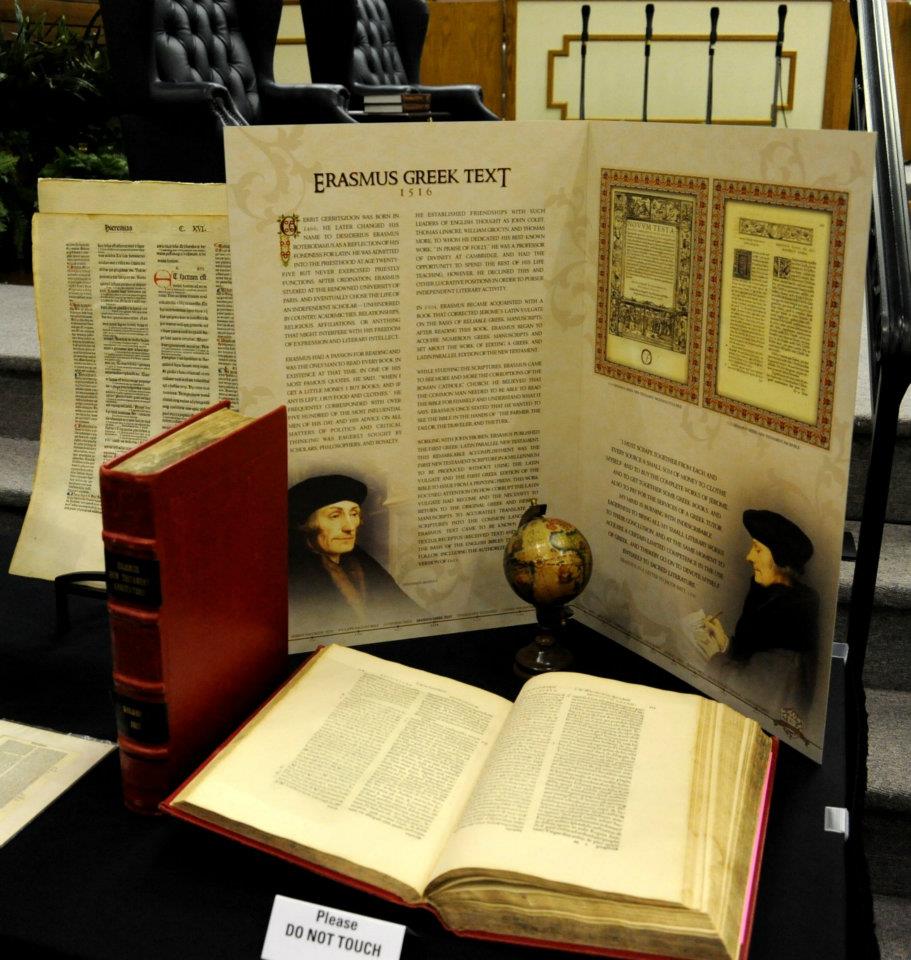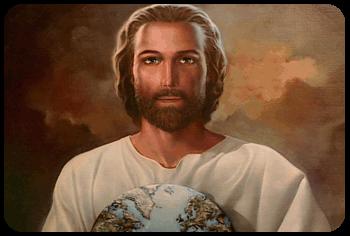
|
|
 |
|
**List: Dutch (Flemish) Ministry the Bible ( de Bijbel )
DUTCH.--1860 S. Bagster [Info only: n.d. John 1:1-14 {correct eeniggeborenen = "only begotten" @ 1:14}.]
|

Dutch Bible History (3) 
**List: Dutch (Flemish) Ministry
the Bible ( de Bijbel )
Dutch (Flemish)...
"III.--VERSIONS OF THE SCRIPTURES IN THIS LANGUAGE. It has been remarked, that the experience of the Dutch churches in the production of a standard
version has been rather similar to our own; for, like us, they had long to wait before the great work
could be completed. The first Dutch version concerning which any thing is accurately known was
a bad translation of Luther's German version, made about the middle of the sixteenth century, by an
elder of the Reformed Church, at Embden. The necessity of procuring an improved version was
publicly discussed as early as 1571, and seems to have occupied the attention of all the synods of the
Dutch churches from that period till 1618. Political troubles, however, drew the public funds into
another channel; and it was not till the famous Synod of Dort, in 1618-19, that actual preparations
were made for the immediate commencement of a new translation. Six translators and eight revisers
for the Old, and as many for the New Testament, were chosen by the votes of the Dutch members of
the synod; and the States General were requested to undertake the expense of the work. In the
directions delivered to the translators, the foremost were,--"That they should adhere religiously to the
original text, and solicitously retain the very phrases of the original tongues, so far as perspicuity, and
the idiom of the Dutch language, permitted; and that in supplying ellipses, when the sense actually
required it, they should use as few words as possible, and express those in the text by a different
character, and included in brackets, that they might be distinguished from the text itself."
The translators of the Old Testament entered upon their work at Leyden, in 1626, and held daily
meetings, which they invariably commenced with prayer. The translation of the New Testament was
conducted in the same spirit of prayer; it was commenced in 1628, and finished in 1634: the trans-
lation of the Old Testament was completed in 1632. Each book was printed as soon as finished, and
a copy was sent to each of the revisers. The revision of the Old Testament was begun in 1633, and
completed in 1634. Six hours daily were devoted to the work, and the revisers commenced each
meeting with prayer, and ended with thanksgiving; those who were not punctual in attendance were
fined a small sum, which was given to the poor. The revisers of the New Testament commenced their
undertaking in 1634, and during the latter part of the year which they devoted to it the plague was
raging at Leyden, yet, although their meetings were held in a room overlooking a churchyard in
which interments were continually taking place, not one of their number was attacked by the disease.
It is also remarkable, that none of the translators long survived the completion of the work. It may
have been that the arduous nature of the undertaking tended to abridge their lives, for, although theywere all men of great literary attainments, many of them declared that they had never before laboured
The Remonstrants, who were followers of
as they did at the translation of the Bible.
The first edition was printed at Leyden, in 1637.
Arminius, and vehemently opposed to the translators in their religious opinions, deputed four of their
most learned men to examine the translation. After strict investigation, they were so struck with the
faithfulness and accuracy of the version, that they adopted it as their own, and the Old Testament has
been in use among the Remonstrants ever since. After the lapse of more than forty years, a version
of the New Testament was executed expressly for their use by Christian Hartsocker, an Arminian
minister, at Rotterdam. It was printed at Amsterdam in 1680; but although professedly a new
translation from the Greek, it chiefly follows the version of the synod.
The orthography of the established version was altered in one edition, according to the system
introduced in 1806 by Professor Siegenbeek, and which received the sanction of the government.
The Rev. Henry Cats, minister of the Dutch Reformed Church at Leyden, was employed to effect
the necessary alterations; but he died before he had finished the work, and it was completed by
Professor Van Hengel. The revised edition appeared in 4to., in 1834. Siegenbeek's system has since
fallen into disrepute, and has not been adopted in subsequent editions.
This beautiful and emphatic version still retains its place as the authorised text of the Dutch
Church; but a new translation has since been made, in the modern style and orthography, by the
learned Professor Van der Palm, of Leyden: it was published in 1825, and, though not adopted in
churches, it is greatly esteemed and extensively used. Another translation, which, however, included
only the Gospel of St. Matthew and the Epistle to the Romans, was made from the Greek, by Adam
Boreel, of Zealand: it was published at Amsterdam in 1693, with the Greek text.
Within a recent period the Netherlands Bible Society appointed a commission to modernise the
orthography of the Bible, and the alterations which were introduced, both in spelling and in some
points of grammar, were considerable. All the editions of that Society are now printed with these
alterations.
Several editions of the authorised Dutch version have been issued by the British and Foreign
Bible Society. Their first edition, consisting of 5000 copies of the New Testament, appeared in 1809;
it was designed primarily for the Dutch prisoners of war in this country, and eventually for the
Dutch settlements and colonies. Considerable numbers of these copies were forwarded to the Cape of
Good Hope, and were most thankfully received; for it was ascertained that not a single Dutch Bible
could be had for money throughout that extensive colony. On receipt of this intelligence, the Society
immediately commenced a large edition of the entire Dutch Bible. Several large editions have since
been printed, at the Society's expense, at Breda, in Holland; amongst them was one consisting of
105,000 Testaments, in diamond, 32mo., in 1850. A 4to. edition of the Bible, with chapter headings
and marginal references, specially intended for family use, and consisting of 5000 copies, issued from
the press at Arnheim on account of the Society in 1859. The total number of copies issued by the
Society up to the beginning of 1860 amounted to 171,395 Bibles, 601,154 Testaments, and 15,500
Psalters. The Netherlands Bible Society has distributed, since its formation in 1815, altogether above
700,000 copies."--1860 S. Bagster [Info only: Remonstrants?, Arminius?, Arminian?]DUTCH.--1860 S. Bagster [Info only: n.d. John 1:1-14 {correct eeniggeborenen = "only begotten" @ 1:14}.]
"IV.--RESULTS OF THE DISSEMINATION OF THIS VERSION. During the last nine years no less than 326,689 copies of the Scriptures have been sold in
Holland by colporteurs, and many instances have been reported of the blessing of God accompanying
their perusal. A colporteur, labouring in Drenthe and Gröningen, met with an instance in which one
New Testament had been blessed to several persons. A Roman Catholic family, in whose house there
were continual quarrels before the introductlon of the Scriptures, now live in peace and harmony.
The parents, through the power of the word, have become converted characters. "We have evidence,"
it is further stated in a recent Report, "that the work in Holland has been blessed by the Lord.Many who, when first offered the Scriptures, mocked or insulted the colporteurs, have more lately
Recent issues of the Dutch Scriptures by the British and
purchased them with avidity. Others, who were remarkable for their awful oaths, have become humble
worshippers of the living God. At Rotterdam, and in the environs, there has been a great revival,
through the distribution of the Bible."
Foreign Bible Society to the settlers at the Cape have been very large, and have been attended with a
great blessing to the colony, particularly in schools."--The Bible of Every Land. (1860, Second Edition) Samuel Bagster [Info only]
[Christian Helps Ministry (USA)] [Christian Home Bible Course]